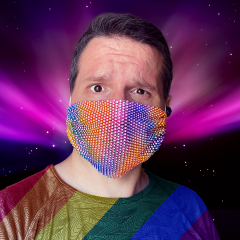



“Twitter launching annotation feature, streaming API”
Each individual annotation will be structured as a triple, consisting of a namespace, a key, and a value. When the feature is launched, the total combined size of the annotations will be limited to 512 bytes. Twitter says that it intends to eventually expand the capacity to 2 kilobytes. Some potential uses include transmitting extended message text, sharing vCards, conducting polls, and embedding full-length links.
That’s clever. (Except for calling it “annotations” instead of, I don’t know, “metadata.”)
In order to be truly useful, annotations that are not application-specific will have to be supported by multiple client implementations. That means that there will have to be a process for building consensus and devising standards.
Twitter says that such an effort will be left as an exercise to the community.
That’s stupid. I understand that Twitter’s always been very hands-off over that sort of thing, but (1) hey guys, you just bought out the leading iPhone client, so that time is gone, and (2) the limitation to 2KB makes it essential that some basic formats be clearly defined (e.g., long links) because developers can’t afford to include redundant alternate versions of the same data, as is done for example in RSS.
Or does (1+2) simply mean that Loren Brichter will end up defining the Twitter standard in next versions of the app, but Twitter itself just doesn’t want to put a completely official stamp on that spec?
Want to know when I post new content to my blog? It's a simple as registering for free to an RSS aggregator (Feedly, NewsBlur, Inoreader, …) and adding www.ff00aa.com to your feeds (or www.garoo.net if you want to subscribe to all my topics). We don't need newsletters, and we don't need Twitter; RSS still exists.
Legal information: This blog is hosted par OVH, 2 rue Kellermann, 59100 Roubaix, France, www.ovhcloud.com.
Personal data about this blog's readers are not used nor transmitted to third-parties. Comment authors can request their deletion by e-mail.
All contents © the author or quoted under fair use.